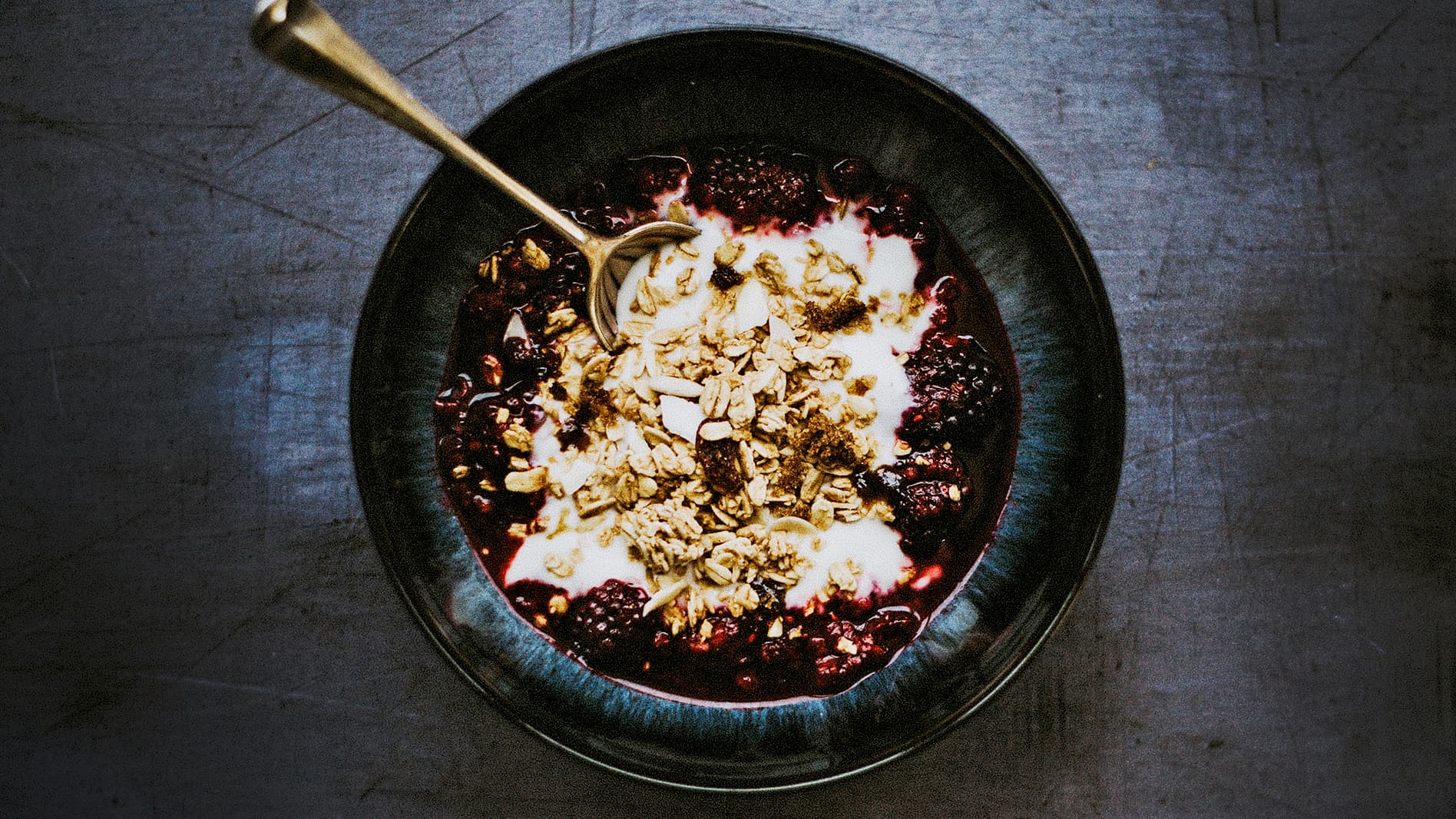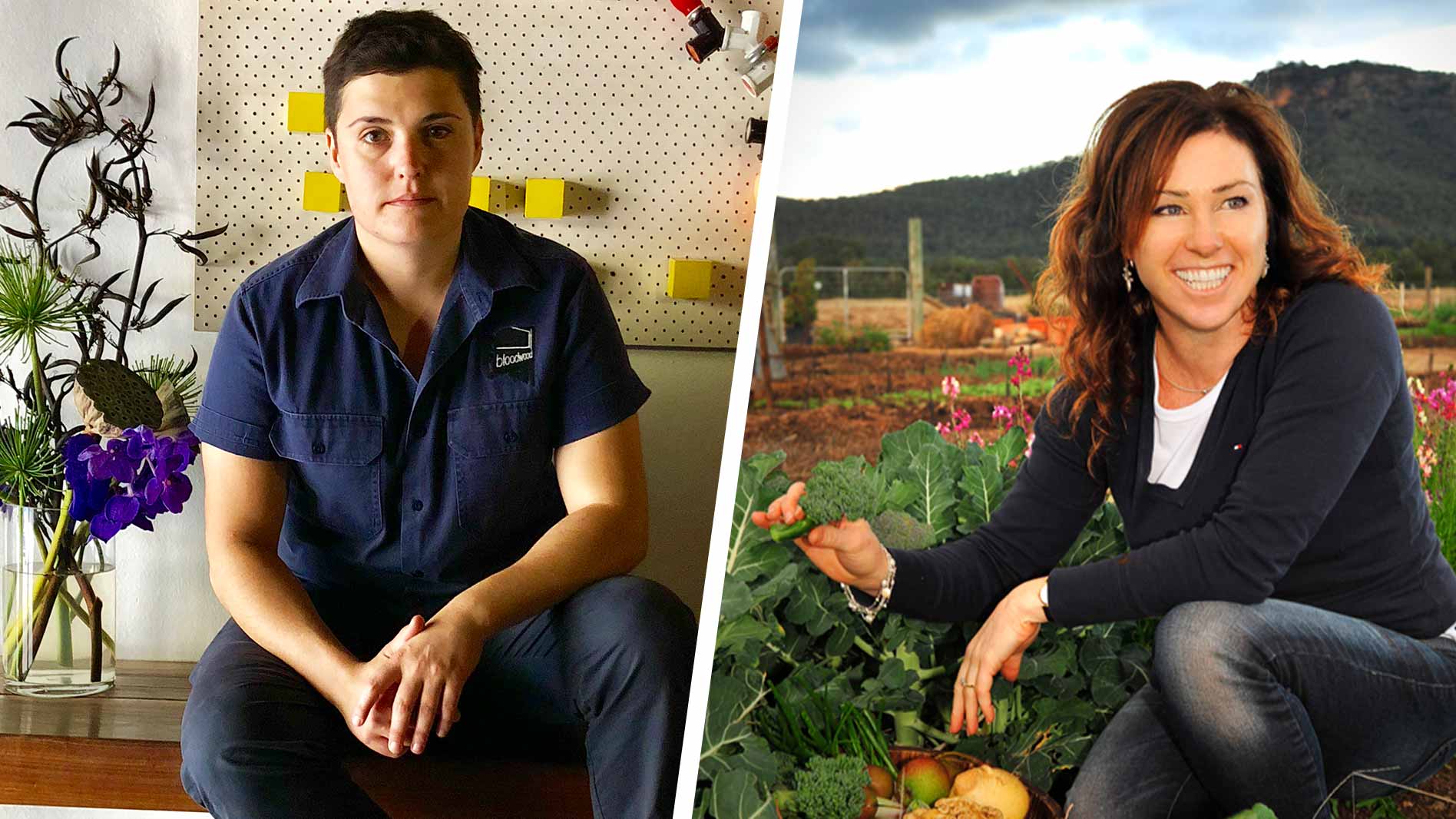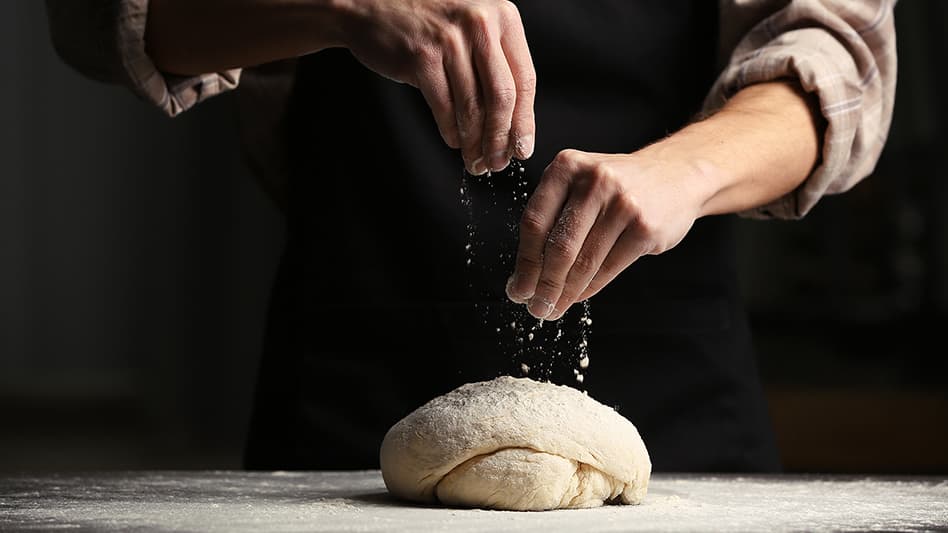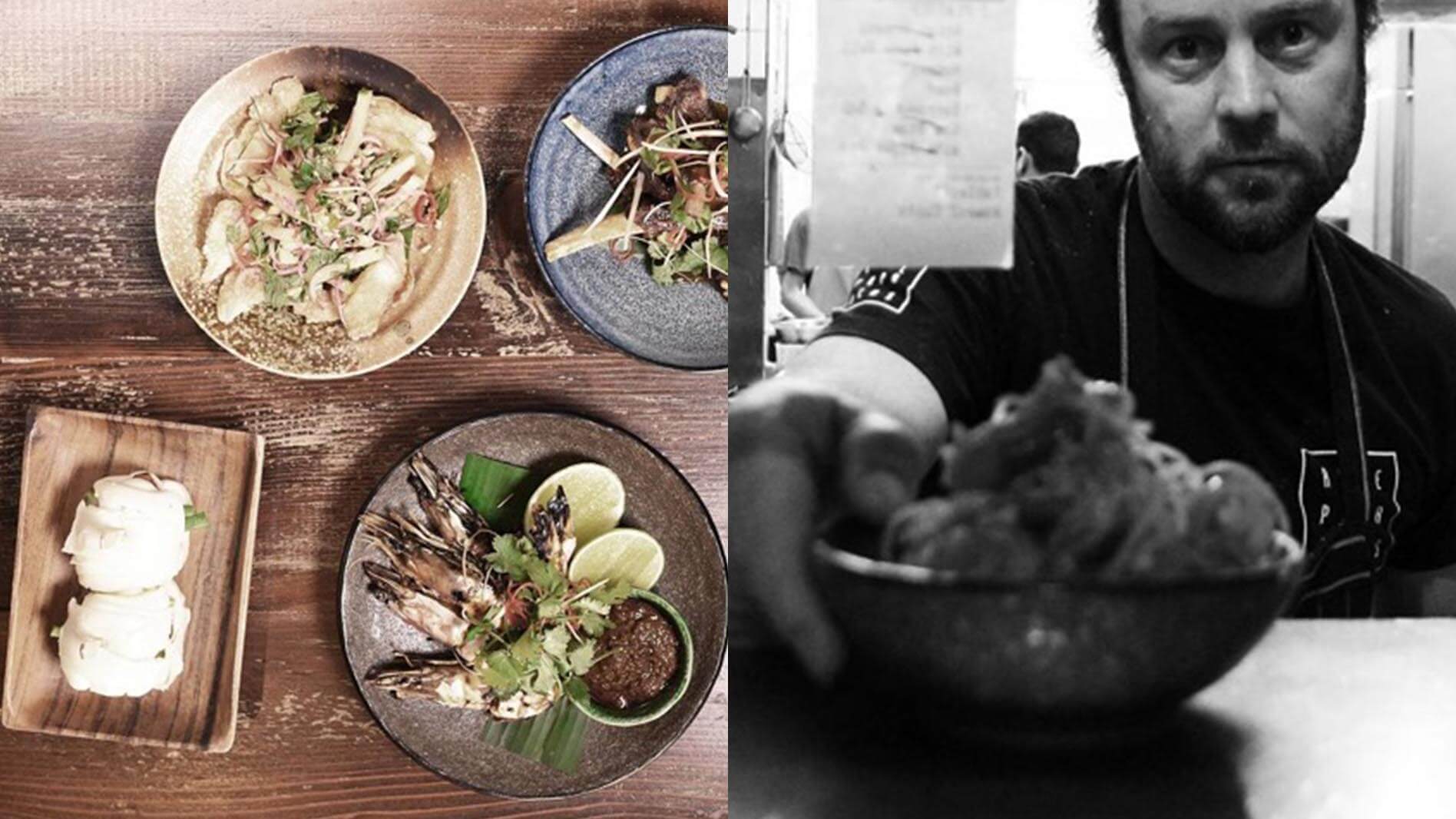Be inspired with recipes created by chefs.
Sign up for updates about products, special offers, news and promotional materials from Goodman Fielder.

Summary
From whole grain oats to rolled oats, oat flour and oat bran, chefs have fallen in favour of the grain as it begins to be included in a variety of dishes – eliminating the days of simple porridge. As a breakfast favourite, lunch solution or dinner addition, oats are now seen as a nutritional ingredient for any menu item at any time of the day as it is considered a healthy option.
To move away from the typical porridge, chefs are now creating lunch and dinner items, even desserts, with oats as either a base ingredient or a supplement. From oatmeal congee to oat crusted chicken and freshly baked bread, the use of oats is proving to have no limits. While oats are rising in popularity, remember each of them has different applications, as well as cook times, storage recommendations and lifespan. Each oat has a distinguishing difference, meaning they can either make your dish one to remember or the complete opposite. For example, steel cut oats are recommended to take 20 minutes to cook, whereas quick oats only take one to three minutes to cook. So, to make it easier for you and to help generate meal inspiration, we’ve broken down each grain on the market.
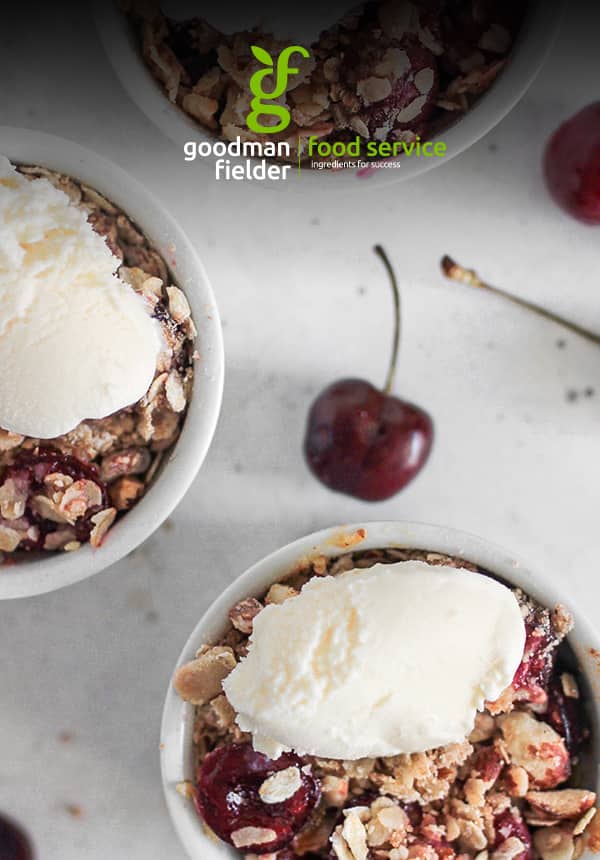
LOOKING FOR WAYS TO GET ADVENTUROUS WITH OATS?
Discover the weird and wonderful ways you can use them on your menu.
Overview

TYPE OF OAT: Whole Grain Oats
PROCESS: Preserves the most nutrients as it is the most natural unbroken grain where the bran and germ are intact.
TEXTURE: Chewy with a nutty flavour.
COOK TIME: 30 – 40 minutes
FUNCTIONS: Can be cooked on the stovetop, as well as the slow cooker and rice cooker. They are commonly used for breakfast.
MEAL SUGGESTIONS: Breakfast: Cinnamon and Apple Whole Oats Porridge

TYPE OF OAT: Rolled Oats
PROCESS: The oats are steamed to make them soft, then they are rolled to create a flat shape.
TEXTURE: Depending on sizes, they can form a range of textures but the most common is its soft, creamy quality.
COOK TIME: 2 – 5 minutes
FUNCTIONS: They are most commonly used for porridges, but can be incorporated into the baking of bread and desserts.
MEAL SUGGESTIONS: Dessert: Raspberry and Pistachio Cheesecake

TYPE OF OAT: Quick/Instant Oats
PROCESS: They are partially cooked, dried then rolled and pressed thinner than rolled oats.
TEXTURE: They form a creamy oatmeal but if they are overcooked and deprived of enough liquid, they can become thick and sticky.
COOK TIME: 1 – 3 minutes
FUNCTIONS: They are added to bread and other baked goods, as well as the traditional morning oats.
MEAL SUGGESTIONS: Breakfast: Porridge with Honey and Berries

TYPE OF OAT: Steel Cut Oats
PROCESS: The wholegrain oat kernels are chopped with steel blades resulting in chunky smaller pieces.
TEXTURE: Has a thicker texture because the starchy centre is exposed.
COOK TIME: 20 minutes
FUNCTIONS: The oats can be cooked on the stovetop and are often consumed for breakfast, but they can also be used throughout savoury dishes due to their soft texture.
MEAL SUGGESTIONS: Dinner: Spicy Pork Shoulder Congee

TYPE OF OAT: Oat Flour
PROCESS: The whole grain oats are grinded and then sieved to make the flour.
TEXTURE: It has a finer texture in comparison to oatmeal.
COOK TIME: N/A
FUNCTIONS: Can be used for all types of baking replacing a portion of standard plain flour to make more nutritious baked goods.
MEAL SUGGESTIONS: Sides: Freshly Baked Bread

TYPE OF OAT: Oat Bran
PROCESS: This product only contains the bran of the oat grain.
TEXTURE: Is fine in texture and produces a nutty flavour when added to baked goods.
COOK TIME: 5 – 7 minutes
FUNCTIONS: Often used as a supplement to other foods for baking and can also be used to form porridge.
MEAL SUGGESTIONS: Breakfast: Homemade Banana and Oat Bran Muffins 
TYPE OF OAT: Oatmeal
PROCESS: The whole grain oats are grounded into small pieces.
TEXTURE: Has a thicker texture in comparison to rolled oats.
COOK TIME: 5 minutes
FUNCTIONS: Oatmeal is suitable for different applications can be used to thicken recipes, whether they are sweet or savoury.
MEAL SUGGESTIONS: Dinner: Oatmeal Turkey Stuffing
DID YOU KNOW?
Did you know the thickness of an oat will vary the cooking time and texture and is usually measured in THOU, thousands of an inch. For example; 21 THOU mean the oat is rolled to 21 thousand of an inch, which creates a quick oat. Whereas, 37 THOU would work best for muesli bars or biscuits because it is thicker.
Download our Chef’s Guide To Oats here!
Related Ideas
4th April 2023
Women in hospitality: How Claire Van Vuuren and Lisa Margan became successful chefs and businesswomen
To celebrate women in hospitality, successful chefs and businesswomen Claire Van Vuuren and Lisa Margan share their stories on reaching the top.
25th March 2023
A Chef’s Guide to Gluten Free Baking
Want to know how to turn your bakery goods into a gluten free delight? Check out our gluten free baking guide now.
25th March 2023
The Importance of Mentorships in Hospitality
The hospitality industry is changing at a pace we have never seen before. To make these challenging times slightly easier, a greater emphasis needs to be placed on mentoring and training the younger generation of chefs to ensure the future of hospitality is stronger than ever before.
